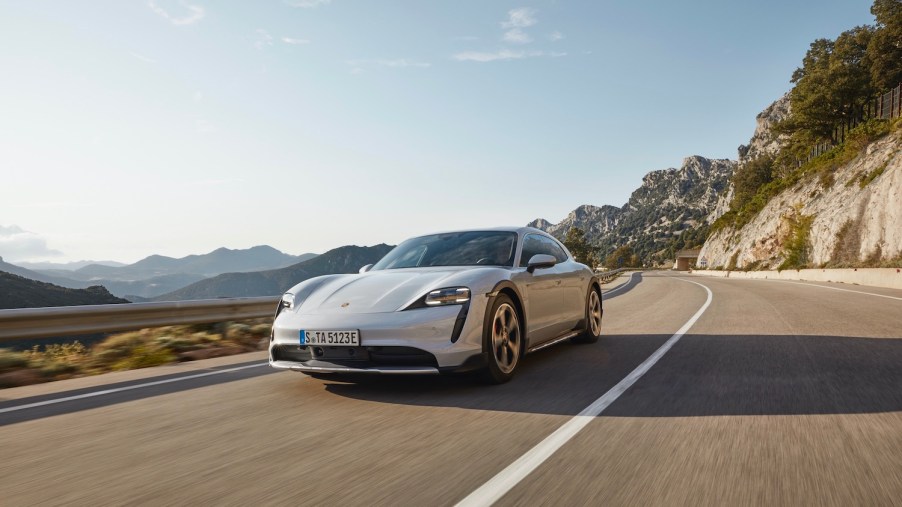
US May Recall Porsche Taycan: Here’s Why
Porsche’s Taycan is considered the brand’s flagship. It has also been selling well. But now the National Highway Traffic Safety Administration is investigating the Taycan suddenly losing power. And this could be happening to 12,000 of the electric cars. Now, a US recall may be in the offing.
The complaints cover both 2020 and 2021 Taycan models

So far the NHTSA has nine complaints it has received. Its Office of Defects Investigation says the complaints cover both 2020 and 2021 Taycan models. It says these complaints all allege “a loss of motive power while in motion at any speed without warning to the driver.”
The ODI is the arm of the NHTSA that does the investigation leading up to a recall. It is not saying a Taycan recall is imminent. But it determines whether a recall is warranted based on its investigative work.
So far all of the complaints have been in the US

Porsche has sold 6,555 Taycan models in the US and 1,146 in Canada. The nine complaints the NHTSA has received all originated in the US. It is not saying how long the investigation will last or if it will actually recall Taycan EVs.
While the NHTSA isn’t giving details about the investigation, Automotive News says the problem centers around the conventional 12-volt battery and not the electric power system. When the conventional battery loses its charge it “may deactivate the entire electrical system and prevent the vehicle from operating.”
The high voltage battery is where the drive power for the Taycan comes from. But the rest of the components in the car are powered by a 12-volt battery. Porsche says it uses this method of powering the other systems for parts commonality with other Porsche cars and also to eliminate the need to shield high-voltage wiring for everything powered this way.
Some Taycan owners receive a warning but others don’t

Some drivers experience an electrical system error warning. But this only occurs after the Taycan has stalled. Others don’t receive an error message at all.
At this stage, the investigation could go either way. If the NHTSA finds that the issue warrants a recall then that is the next step. Otherwise, if it finds there to not be anything wrong then it will close the investigation.



